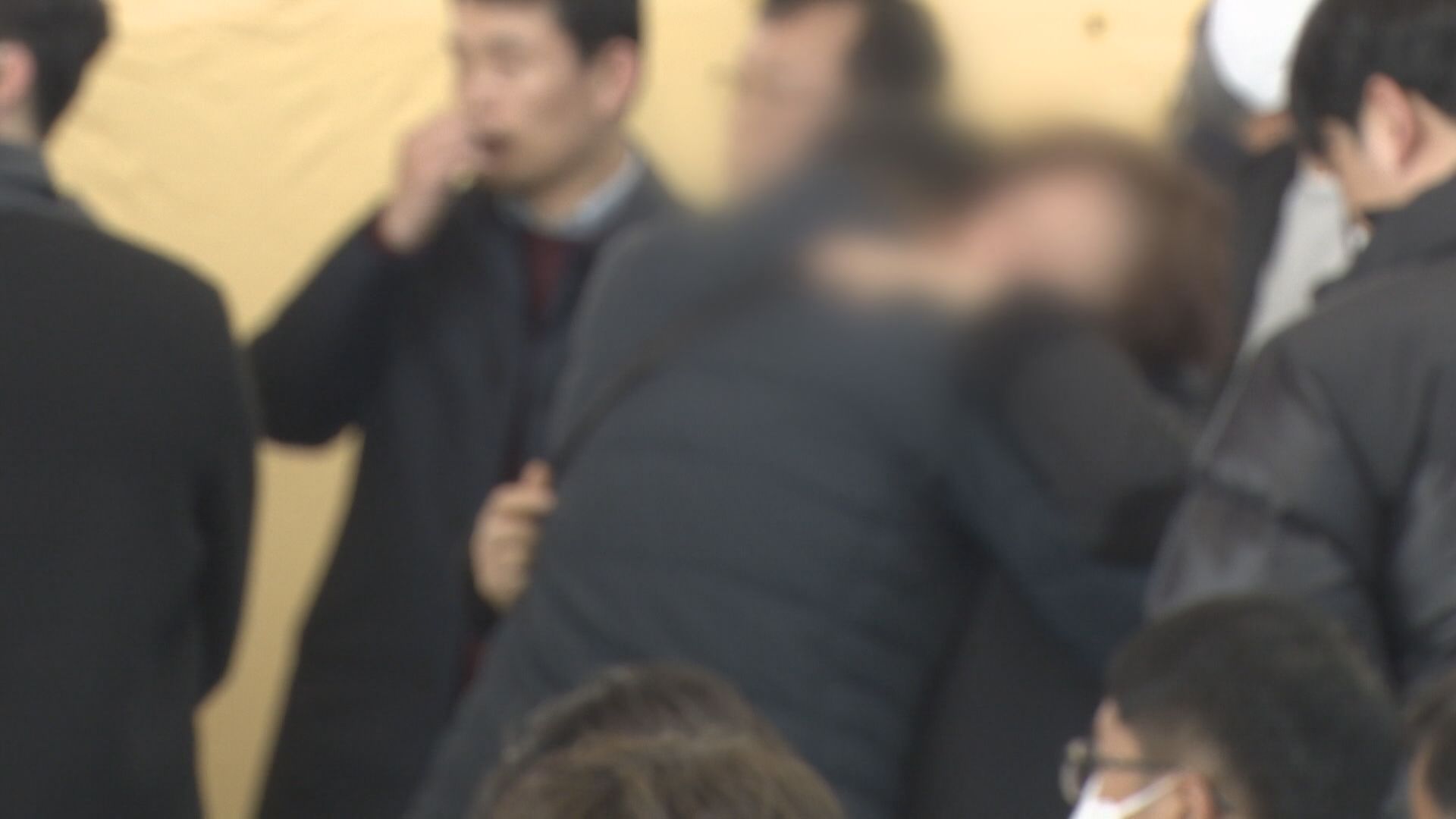Lingering Trauma: 100 Days After the Jeju Airlines Disaster, Psychological Scars Remain
By Archyde News Service
It has been 100 days since the Jeju Airlines disaster, and the invisible wounds of trauma continue to affect victims and first responders alike. Reports indicate widespread anxiety, eating disorders, and even hallucinations among those touched by the tragedy. As the immediate shock fades, local governments and mental health organizations are intensifying their efforts, focusing on providing thorough psychological support and healing programs.
Chung Kyung-won, reporting from the affected region, highlights the ongoing struggles: “It’s been 100 days as the disaster occurred, but the trauma of victims and field apprentices is ongoing.”
Bereaved Families Grapple with Delayed Trauma
Many bereaved families continue to struggle with the loss of their loved ones.while some exhibited no immediate signs of trauma,others sought counseling weeks later,belatedly confronting their grief.
According to reports, only 112 families received counseling through the Gwangju and Jeonnam Mental Health Welfare Center in the period following the disaster. The delayed onset and unpredictable nature of trauma highlight the need for sustained and accessible mental health services.
Sang-ha Park notes, “The same is true of the Sewol ferry and Itaewon (tragedy).”
This statement underscores a distressing pattern: major disasters often leave lasting psychological scars that require long-term attention.
First Responders Face Unique Challenges
the disaster has also taken a meaningful toll on first responders. Firefighting personnel, in particular, are grappling with the cumulative effects of repeated exposure to traumatic events.
Historically, psychological support for these frontline workers has been inadequate. the Jeju Airlines disaster has, however, prompted a renewed focus on their well-being, with the Jeonnam Fire Department implementing new initiatives to address mental health needs.
The Jeonnam Fire Department swiftly responded by offering support for their staff:
Yoon Hee Kang stated, “I went to the staff and conducted in-depth consultation. Before I had in-depth consultation, I checked the PTSD (trauma stress disorder) scale and checked the status of the employees and provided customized psychological support according to the results.”
This proactive approach, including PTSD screenings and tailored counseling, represents a significant step forward in supporting the mental health of first responders.
| First Responders | Challenges Faced | Support Initiatives |
|---|---|---|
| Firefighters | Exposure to traumatic scenes, risk of PTSD | PTSD screenings, in-depth consultations |
| Paramedics | High-stress situations, emotional burnout | Customized psychological support |
| Police Officers | Dealing with victims, maintaining order | Stress management programs |
lessons for the U.S.: Disaster preparedness and Mental Health
The aftermath of the jeju Airlines disaster offers valuable lessons for the United States in terms of disaster preparedness and mental health care. In the U.S.,events such as Hurricane Katrina,the Las Vegas shooting,and the Surfside condo collapse have highlighted the critical need for comprehensive mental health support following mass casualty events.
One crucial takeaway is the importance of early intervention. Just as the Jeonnam Fire Department implemented immediate screenings, U.S. agencies shoudl prioritize rapid mental health assessments for both victims and first responders. This proactive approach can help identify individuals at risk of developing PTSD or other mental health conditions, allowing for timely and effective treatment.
Another key lesson is the need for culturally competent care. Mental health services should be tailored to the specific needs of diverse communities, taking into account factors such as language, cultural beliefs, and socioeconomic status.
The Path Forward: Sustained Support and Awareness
With 157 lives lost in Gwangju and Jeonnam alone, the Jeju Air airliner disaster has left deep psychological scars across the region. As Kyung-won notes, “As a result of the Jeju air airliner disaster, 157 people were sacrificed in Gwangju and Jeonnam alone, and there were large and small psychological raw raw rawness for all locals.”
The challenge now is to ensure that those affected receive the sustained support they need to heal. This requires ongoing investment in mental health services, as well as increased public awareness of the long-term effects of trauma.
Only through continuous interest and management of trauma healing can the government and local authorities truly support the victims and communities affected by this devastating event.
What are the long-term mental health impacts of disasters on first responders, and how can thes impacts be mitigated?
Lingering Trauma: An Interview with Dr.Anya Sharma on the Jeju Airlines Disaster’s Impact
Introduction
Hello and welcome to Archyde News. Today, we’re discussing the lasting psychological impact of the Jeju Airlines disaster, which occurred 100 days ago. We have with us Dr.Anya Sharma, a leading expert in trauma and a professor of clinical psychology. Dr.Sharma, thank you for joining us.
Dr. Sharma: Thank you for having me. It’s an crucial conversation to have.
Understanding the Scope of Trauma
Archyde News: Dr. Sharma, the article highlights how the trauma isn’t just immediate; it lingers. Can you elaborate on the delayed onset of trauma and why we’re seeing it in the context of this disaster?
Dr. Sharma: Certainly. Delayed trauma is often observed in major disasters.The initial shock can be overwhelming, and individuals may go into “survival mode,” focusing on immediate needs. Weeks or even months later, as life returns to a semblance of normalcy, the emotional impact manifests. Stressors like anniversaries, triggers (sounds, sights, etc.), or even simple reminders can bring these feelings to the surface.
Archyde News: The article mentions that only a fraction of bereaved families received counseling initially. What are the potential consequences of a lack of early intervention,and how can we improve access to mental health services?
Dr. Sharma: Without early intervention, unresolved trauma can escalate into more severe mental health conditions such as chronic anxiety, depression, PTSD, and even substance abuse. Improving access means increasing the availability of mental health professionals, reducing the stigma associated with seeking help, and providing culturally sensitive services. Offering free or low-cost therapy and ensuring community outreach programs are crucial.
The Unique Challenges Faced by First Responders
Archyde News: First responders, especially firefighters and paramedics, face unique challenges. How does repeated exposure to traumatic events affect their mental health?
Dr. Sharma: First responders are constantly exposed to traumatic situations, often dealing with life-or-death scenarios, severe injuries, and fatalities.This constant exposure can lead to compassion fatigue, burnout, and a heightened risk of developing PTSD. the cumulative effect is often overlooked but can be incredibly damaging.
Archyde News: The Jeonnam Fire Department is implementing PTSD screenings and tailored counseling. How effective are these measures?
Dr. Sharma: Proactive measures like PTSD screenings and tailored counseling are vital.Early detection allows for interventions and can prevent the growth of more serious mental health issues. Providing a supportive environment that encourages help-seeking, rather than stigmatizing it, is crucial for their long-term well-being.
Learning from the Jeju Airlines disaster: Lessons for the U.S.
Archyde News: The article draws parallels to events in the U.S. What can the U.S. learn from the Jeju Airlines disaster to improve disaster preparedness and mental health support?
Dr. Sharma: One key lesson is the need for early intervention, as the Jeonnam Fire Department demonstrated. Rapid mental health assessments for both victims and first responders are crucial. Furthermore,mental health services need to be culturally competent. This means accounting for language, cultural beliefs, and socioeconomic factors in mental health support. We can foster a more resilient response by prioritizing needs and offering accessible care.
Archyde news: Investment in resources seems to be key,but what else is necessary?
Dr. Sharma: In addition to resources, public awareness is very important. There should be campaigns raising awareness about the long-term effects of trauma, along with providing education on how to manage symptoms and where to seek out help. If the general public has knowledge and empathy, it can help support those affected.
The Path Forward
Archyde News: Dr.Sharma, thank you so much for yoru insights. Before we conclude, is there one message you’d like to leave with our audience regarding recovering from the Jeju Airlines disaster?
Dr. Anya Sharma: Seek help when needed. Trauma can be isolating, but recovery is possible with support. If you require help, please use available resources.Communities must ensure continuous support for trauma recovery and awareness.
Archyde News: We want to open this up to our readers. Are there any thoughts or experiences you would like to share surrounding this sensitive topic? Please share those thoughts in the comments below. Thank you all for joining us.








